第3章 CHILDHOOD AND YOUTH(2)
The faculty lingers in my memory, and I have the same reverence and affection for its members, though sixty-five years out of college, that I had the day I graduated. Our president, Theodore D. Woolsey, was a wonderful scholar and a most inspiring teacher. Yale has always been fortunate in her presidents, and peculiarly so in Professor Woolsey. He had personal distinction, and there was about him an air of authority and reserved power which awed the most radical and rebellious student, and at the same time he had the respect and affection of all. In his historical lectures he had a standard joke on the Chinese, the narration of which amused him the more with each repetition. It was that when a Chinese army was beleaguered and besieged in a fortress their provisions gave out and they decided to escape.
They selected a very dark night, threw open the gates, and as they marched out each soldier carried a lighted lantern.
In the faculty were several professors of remarkable force and originality. The professor of Greek, Mr. Hadley, father of the distinguished ex-president of Yale, was more than his colleagues in the thought and talk of the undergraduates. His learning and pre-eminence in his department were universally admitted. He had a caustic wit and his sayings were the current talk of the campus.
He maintained discipline, which was quite lax in those days, by the exercise of this ability. Some of the boys once drove a calf into the recitation-room. Professor Hadley quietly remarked:
"You will take out that animal. We will get along to-day with our usual number." It is needless to say that no such experiment was ever repeated.
At one time there was brought up in the faculty meeting a report that one of the secret societies was about to bore an artesian well in the cellar of their club house. It was suggested that such an extraordinary expense should be prohibited. Professor Hadley closed the discussion and laughed out the subject by saying from what he knew of the society, if it would hold a few sessions over the place where the artesian well was projected, the boring would be accomplished without cost. The professor was a sympathetic and very wise adviser to the students. If any one was in trouble he would always go to him and give most helpful relief.
Professor Larned inspired among the students a discriminating taste for the best English literature and an ardent love for its classics. Professor Thacher was one of the most robust and vigorous thinkers and teachers of his period. He was a born leader of men, and generation after generation of students who graduated carried into after-life the effects of his teaching and personality. We all loved Professor Olmstead, though we were not vitally interested in his department of physics and biology. He was a purist in his department, and so confident of his principles that he thought it unnecessary to submit them to practical tests.
One of the students, whose room was immediately over that of the professor, took up a plank from the flooring, and by boring a very small hole in the ceiling found that he could read the examination papers on the professor's desk. The information of this reaching the faculty, the professor was asked if he had examined the ceiling. He said that was unnecessary, because he had measured the distance between the ceiling and the surface of his desk and found that the line of vision connected so far above that nothing could be read on the desk.
Timothy Dwight, afterwards president, was then a tutor. Learning, common sense, magnetism, and all-around good-fellowship were wonderfully united in President Dwight. He was the most popular instructor and best loved by the boys. He had a remarkable talent for organization, which made him an ideal president. He possessed the rare faculty of commanding and convincing not only the students but his associates in the faculty and the members of the corporation when discussing and deciding upon business propositions and questions of policy.
The final examinations over, commencement day arrived. The literary exercises and the conferring of degrees took place in the old Center Church. I was one of the speakers and selected for my subject "The Hudson River and Its Traditions." I was saturated from early association and close investigation and reading with the crises of the Revolutionary War, which were successfully decided on the patriots' side on the banks of the Hudson. I lived near Washington Irving, and his works I knew by heart, especially the tales which gave to the Hudson a romance like the Rhine's.
The subject was new for an academic stage, and the speech made a hit. Nevertheless, it was the saddest and most regretful day of my life when I left Yale.
My education, according to the standard of the time, was completed, and my diploma was its evidence. It has been a very interesting question with me how much the academy and the college contributed to that education. Their discipline was necessary and their training essential. Four years of association with the faculty, learned, finely equipped, and sympathetic, was a wonderful help.
The free associations of the secret and debating societies, the campus, and the sports were invaluable, and the friendships formed with congenial spirits added immensely to the pleasures and compensations of a long life.